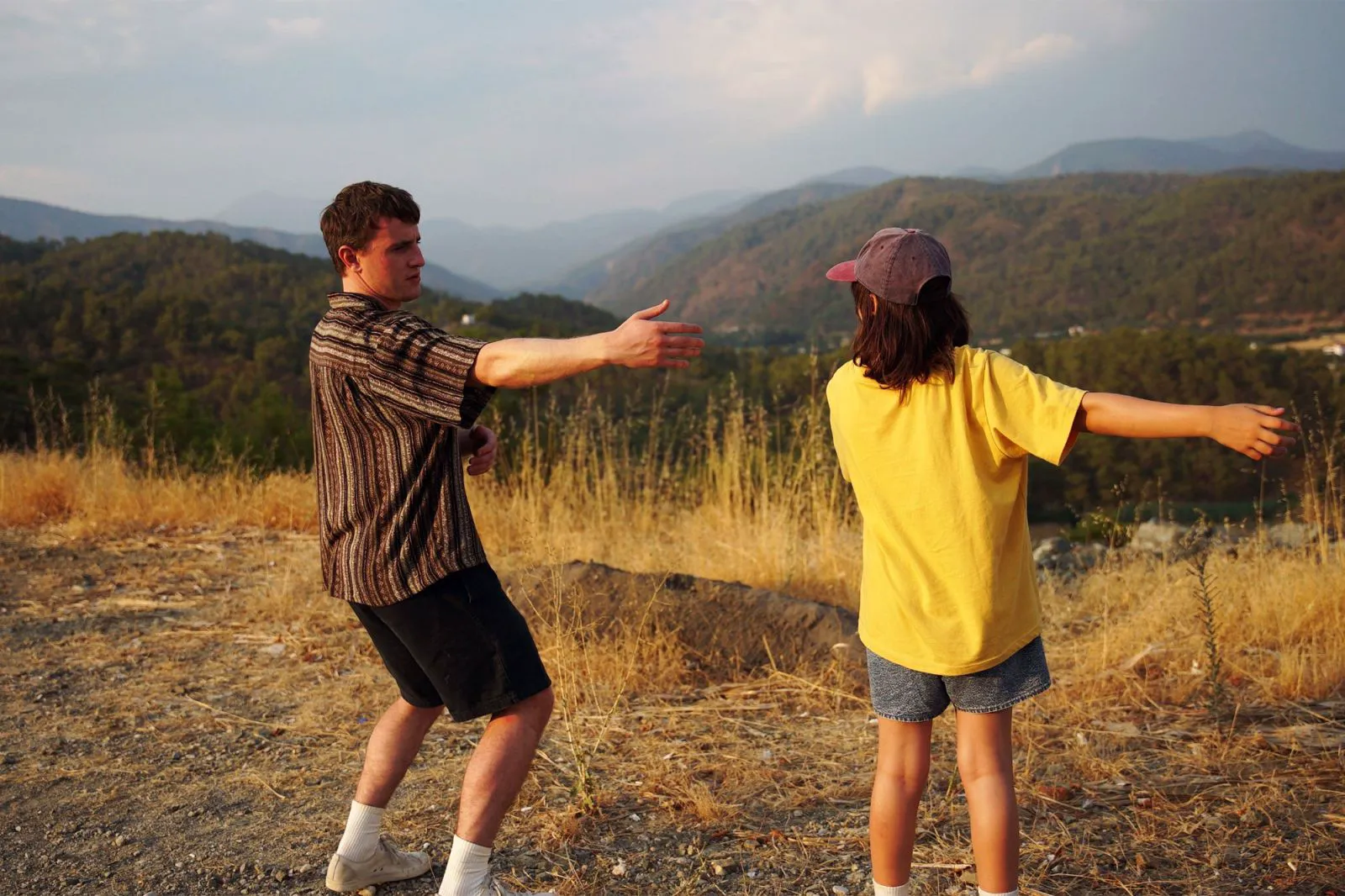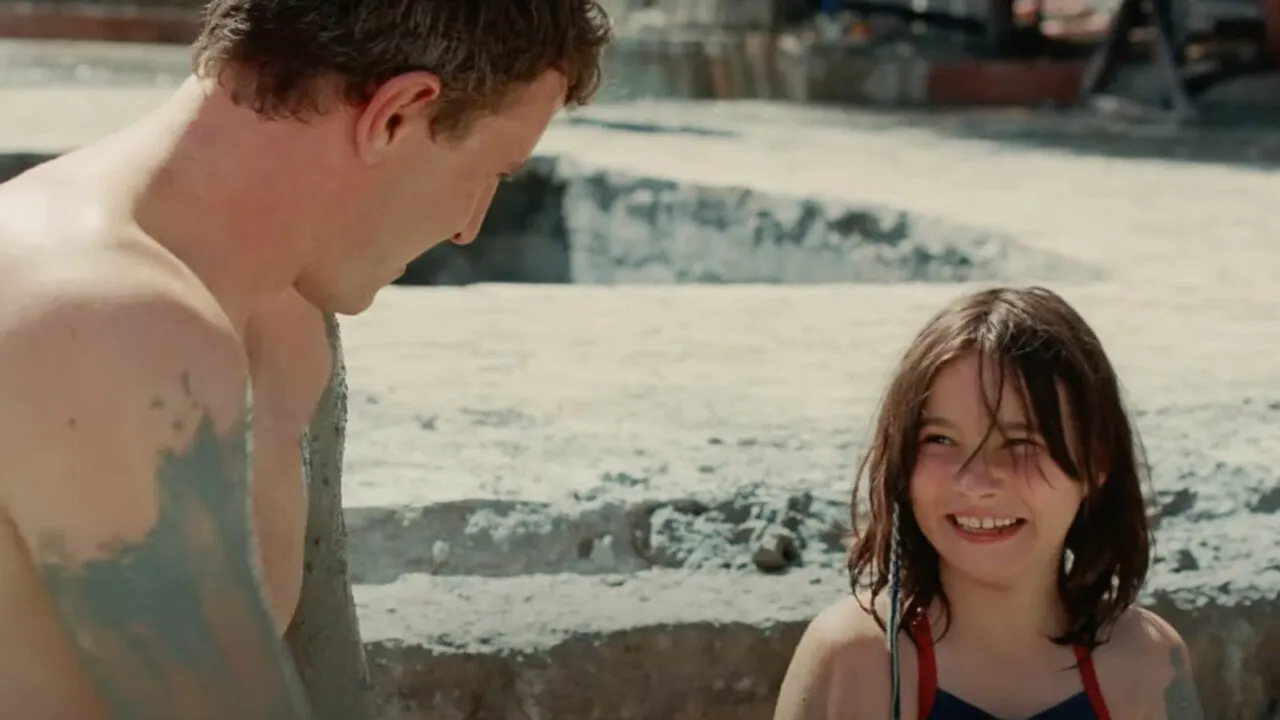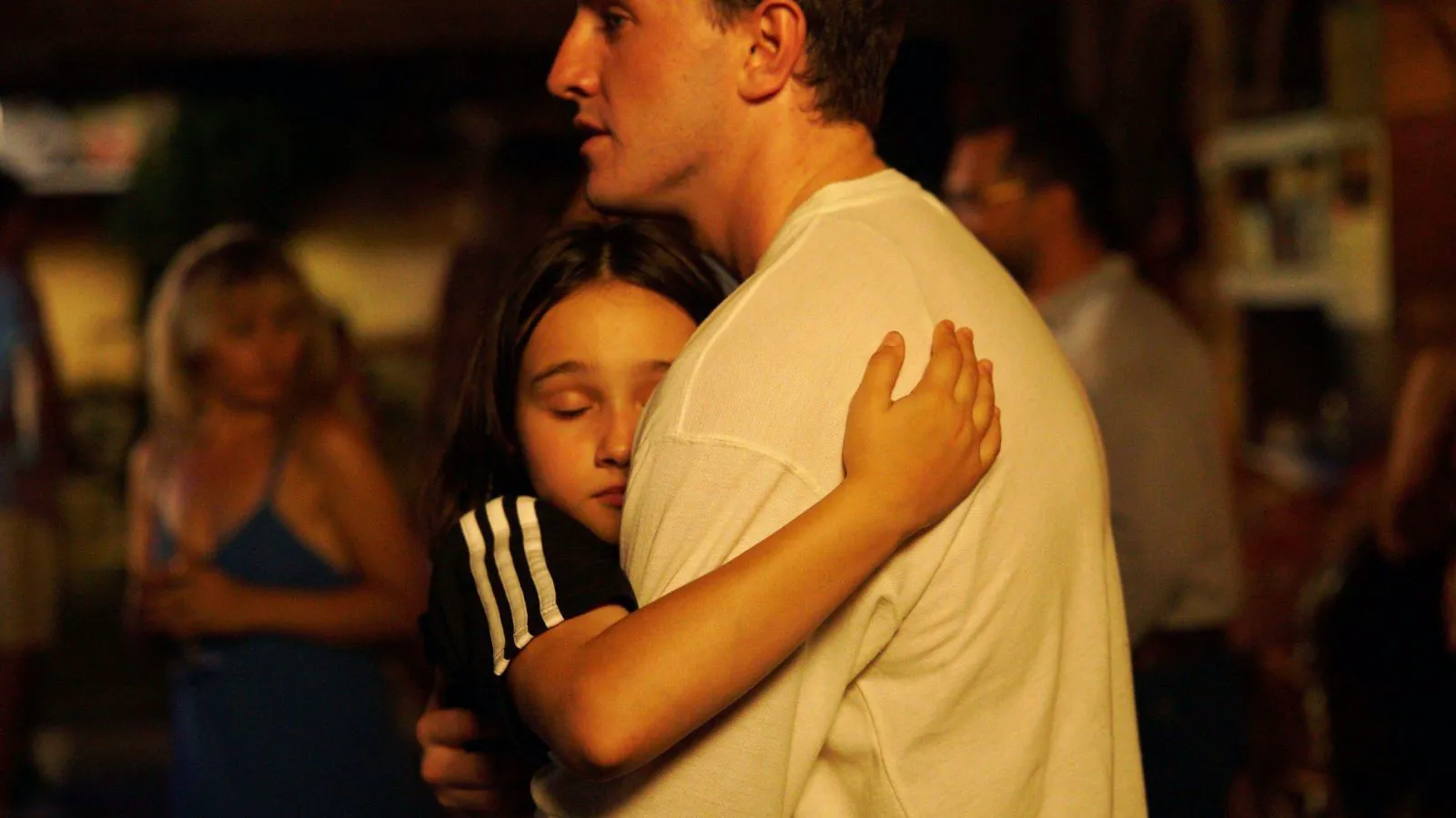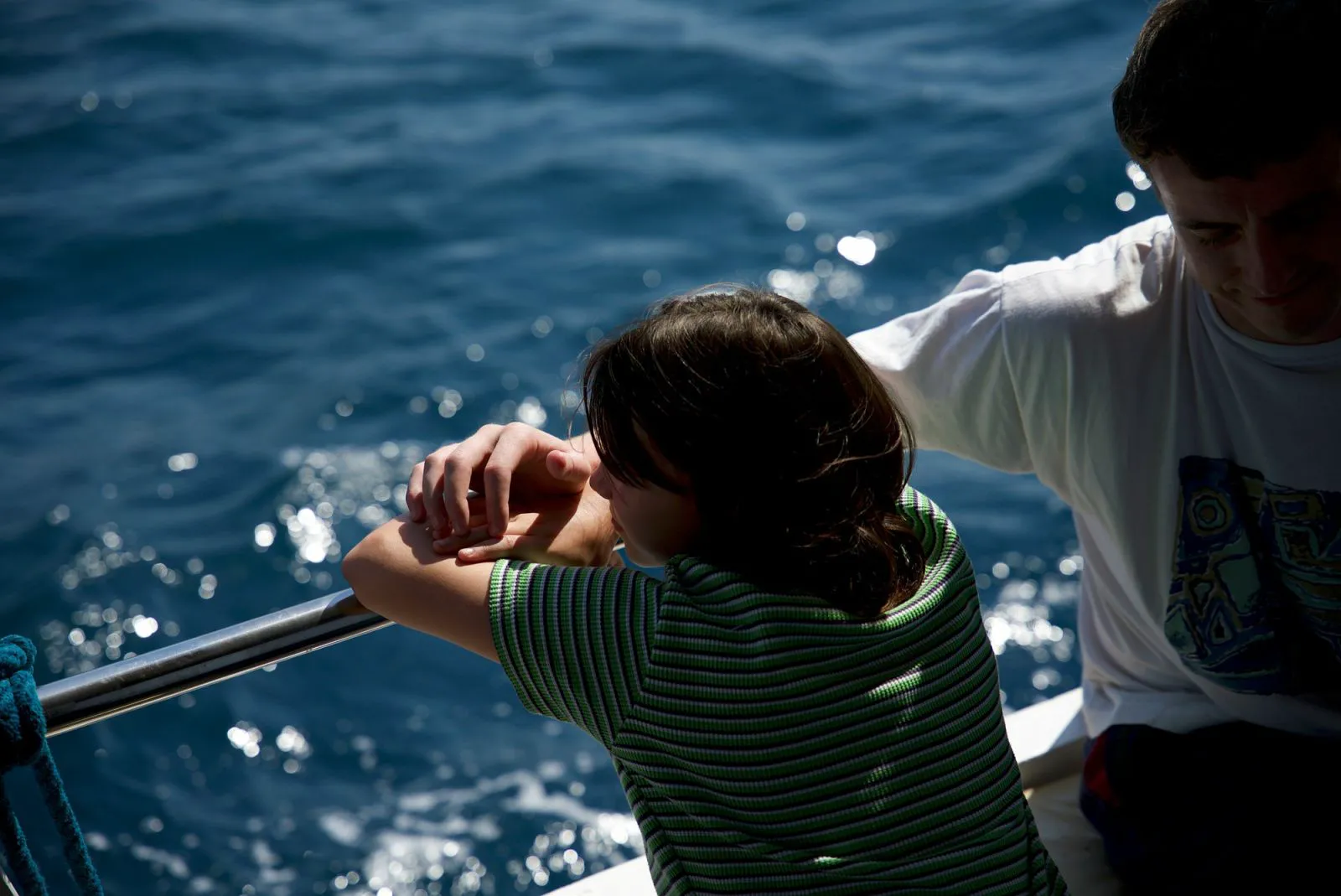Sophie’s parents (Frankie Corio) have been divorced for a while. In the late 1990s, her father, Calum (Paul Mescal), decides to take her on vacation to Turkey. During their getaway, Sophie tries to connect with her introverted dad, who seems to be hiding a lot from her.

Paul Mescal as Calum in “Aftersun”
The Unspoken Language of Childhood
Children are often placed in a kind of vacuum, told “you’ll understand when you’re older,” which temporarily dismisses their individuality, intelligence, right to logic, and other important aspects. “You’re too young,” “Don’t get involved,” “It’s dangerous” – these familiar phrases make us cautiously set aside our curiosity and observe the “adult” world from a distance. Adults often leave things unsaid, omit the painful parts, and avoid sharing their burdens with children, which often backfires. This unspoken trauma reaches its peak in the tender and all-encompassing debut feature by Scottish director Charlotte Wells, “Aftersun,” a standout independent film.

Frankie Corio as Sophie in “Aftersun”
Decoding a Father’s Silence
Sophie is 11. With limited options at the resort, she meets other vacationing teenagers, peeking into her own coming-of-age and eventual separation from her family, where she’ll soon stop relying on adults. In this fleeting moment, Calum tries to make up for lost time in her childhood but seems unsure how to express his overwhelming feelings. His own parents were indifferent to him, if not worse. What even defines a good father figure: gifts, carefully applying sunscreen to Sophie’s back, mud baths, quality time? Consuming thoughts, avoiding eye contact, a casually tossed-off “I’m okay” – a week isn’t enough to fix years of loneliness. But what if the key to their shared room, which Sophie searches for in one scene, is the camera? The girl records their daily life, trying to decipher the man who is supposedly close to her, but she doesn’t succeed. Calum often feels uncomfortable being filmed, asking her to turn it off, retreating back into himself.

Paul Mescal as Calum in “Aftersun”
The Weight of Unseen Battles
Wells intentionally withholds the true reasons for Calum’s withdrawn nature, which resembles depression. Viewers won’t learn firsthand about the circumstances of his broken arm and cast, but they’ll sense that darkness is very close. The character battles it with meditation books and tai chi, lying in the sun and diving, drunkenly plunging into the sea without any equipment, choosing a rug at a Turkish bazaar (Calum lies down on it immediately after buying it, dissolving into the fibers as if they protect him from inner terror). As a form of reconnection and therapy, he refuses to perform “Losing My Religion” by R.E.M. with his daughter at a public karaoke, despite having agreed to it. The daughter goes ahead anyway. Even without a musical ear, she knows the words by heart, and in those three minutes, she finally says goodbye to him (and will find him much later).

Frankie Corio as Sophie in “Aftersun”
Memory and Reconciliation
“Aftersun” doesn’t shy away from its autobiographical nature (Polaroid photos of the director with her real father on a similar vacation appear at the end). Sophie reflects Wells herself, becoming a documentary filmmaker, reviewing footage between nighttime care for her child. What was her father like in his 30s, before, after? Did he plan to be this way? Mescal and Corio embody their tandem seamlessly, naturalistically, without a single forced note, but it’s the former who manages to reach a new level with his personal absolute, the heartbreaking “Normal People.” The Irishman once again appears as a tormented figure, with different tasks, but with the same unattainable, tightly closed eyes.
In the sun-drenched resort, Sophie exists in a state of simultaneous closeness and distance from her father. A recurring thread throughout the film is a dance rave scene in an aircraft hangar: in the strobe lights, she sees Calum among the crowd, ecstatically releasing his dark energy, forgetting all his traumas, begging for forgiveness. The adult Sophie screams in response, takes his face in her hands, and breaks into the same ritualistic dance to “Under Pressure” by Mercury and Bowie. Dialogue, says Wells, doesn’t always have to be direct – memory, connecting archival home videos and fragmented chronicles in the subconscious, is just as much a participant. The vacation ends, the plane exits the hangar, and Sophie still waves, dedicating the film to her father and hoping for an inevitable reunion.